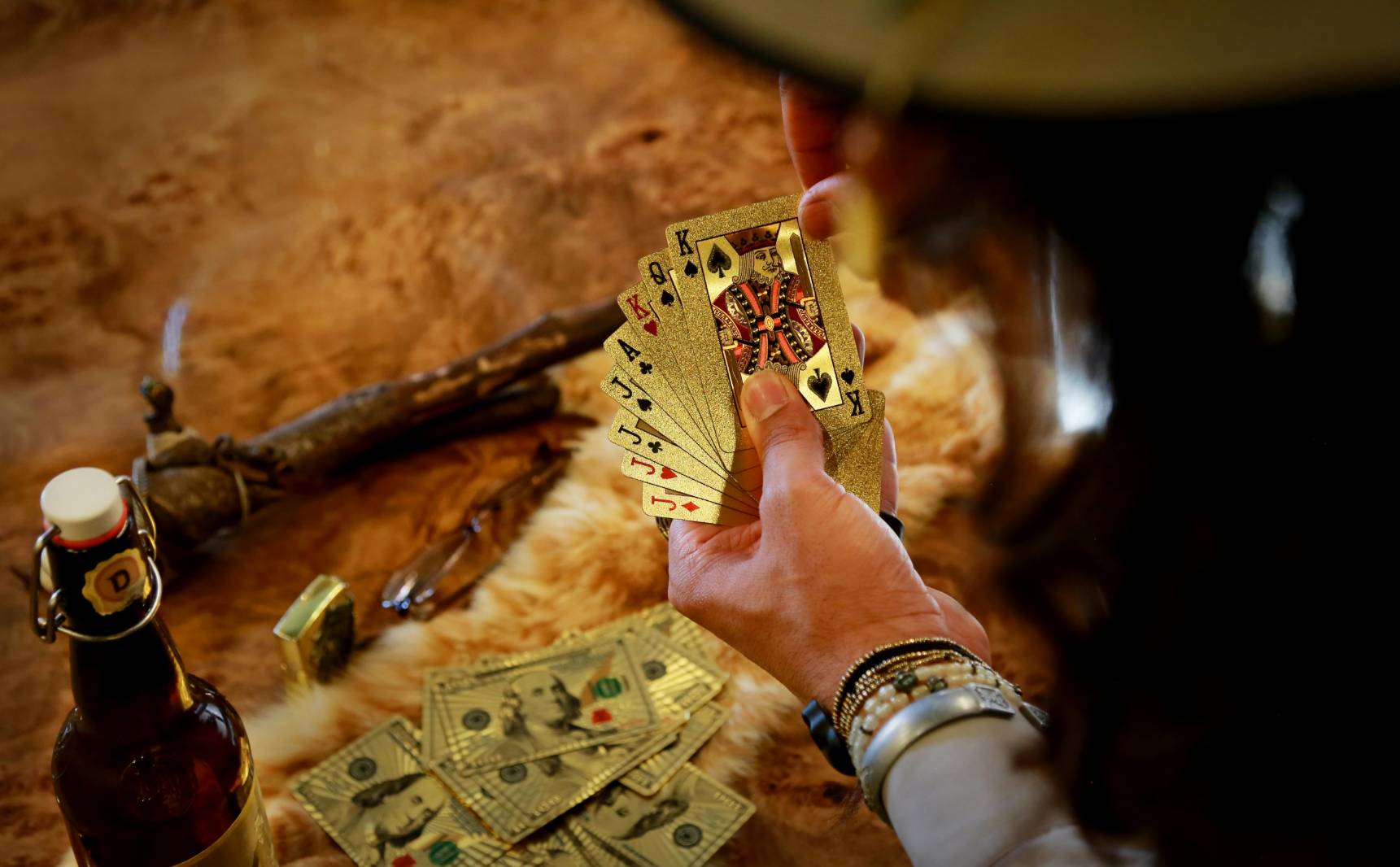 Samantha Lee
Samantha Lee
Online roulette has become one of the most popular casino games in the United States, and with the rise of legalized online gambling in states like New Jersey, Pennsylvania, and Michigan, bonuses are playing a major role in attracting new players. These bonuses may look straightforward, but understanding how they work is crucial if you want to maximize your online roulette experience. From welcome offers to cashback deals, here’s what players should know before spinning the wheel.***Welcome Bonuses and Deposit MatchesThe most common type of bonus U.S. players encounter is the welcome bonus, usually offered when you sign up at an online casino. These often come in the form of deposit matches, where the casino will match your deposit up to a certain percentage. For example, a 100% match bonus on a $200 deposit gives you an additional $200 to play with. While attractive, players should carefully check wagering requirements to understand how many times the bonus amount must be wagered before winnings can be withdrawn.***No-Deposit BonusesNo-deposit bonuses are highly sought after because they let players try online roulette without risking their own money. Typically offered as free credits or free spins on slots, some platforms also allow these bonuses to be used on roulette tables. However, no-deposit bonuses usually come with stricter wagering requirements and withdrawal limits, making them a fun but limited way to explore the game.***Cashback and Loss RebatesSeveral U.S. online casinos now offer cashback bonuses, which refund a percentage of your losses over a set period. For example, a casino may return 10% of your net losses at the roulette table for the week. These bonuses provide a safety net for players, reducing the sting of bad luck and encouraging continued play. Cashback deals are especially attractive to regular roulette players who want a steady benefit rather than just one-time offers.***Loyalty and VIP ProgramsMost major online casinos in the U.S. feature loyalty or VIP programs where players earn points for every wager. These points can later be exchanged for cash, bonuses, or exclusive rewards such as event invitations and luxury gifts. High rollers who frequently play online roulette often benefit the most, as VIP programs may offer higher cashback percentages, faster withdrawals, and dedicated account managers.***Game Contribution RulesOne of the most important things to understand about roulette bonuses is game contribution. Many online casinos weigh roulette differently than slots when it comes to clearing bonus wagering requirements. While slots often count 100% toward wagering, roulette may only count 10% or even less. This means players may need to wager much more on roulette than on slots to meet requirements. Always check the terms and conditions to avoid surprises.***Live Dealer Roulette PromotionsLive dealer roulette has become a massive hit in the U.S. online casino scene, and many platforms now offer specific bonuses tied to live tables. These may include leaderboard competitions, prize drops, or special multipliers for certain bets. For players who enjoy the authenticity of live gaming, these promotions provide an engaging way to enhance the experience while adding extra value.***Mobile-Exclusive BonusesAs mobile play continues to dominate the online gambling market, many U.S. casinos offer mobile-exclusive promotions. These might include free chips for downloading the casino’s app or deposit matches for mobile play only. Since roulette translates seamlessly to smartphones and tablets, mobile bonuses are becoming a major factor in how players choose platforms.***Responsible Gambling and Bonus UseWhile bonuses can add excitement, it’s important for players to approach them responsibly. The temptation to chase wagering requirements can sometimes lead to overspending. U.S. online casinos are increasingly required to promote responsible gambling tools, such as deposit limits, time trackers, and self-exclusion features. Players should always see bonuses as an added perk—not a guarantee of profit.***Future Trends in Roulette BonusesBy 2025, online roulette bonuses in the U.S. are evolving rapidly. Casinos are beginning to personalize promotions based on player behavior, offering tailored deals that suit individual preferences. Gamified bonuses, where players complete missions or challenges for rewards, are also on the rise. With the integration of advanced technology, future bonuses are likely to be more interactive, transparent, and rewarding for players who know how to use them wisely.***ConclusionRoulette bonuses in U.S. online casinos can significantly enhance your gaming experience, but only if you understand the fine print. From welcome offers and cashback deals to loyalty programs and live dealer promotions, the options are diverse. By paying attention to wagering requirements and contribution rules, players can make smarter choices and get the most out of their bonuses. In a rapidly growing digital gaming market, knowledge is the key to spinning smart and enjoying the thrill of online roulette responsibly.
By Samantha Lee · 08 Oct 2025

Online roulette has exploded in popularity across the United States, and American players are leaving their mark on how the game is played, marketed, and experienced. No longer just a European favorite, roulette has become a cultural phenomenon in the U.S. digital casino world. From betting styles to mobile-first preferences, the habits of American gamblers are shaping the modern roulette landscape in ways that are unique, innovative, and distinctly American.***The Rise of Mobile GamingOne of the biggest ways American players are influencing online roulette is through mobile usage. With smartphones now the dominant device for entertainment, U.S. players demand roulette platforms that are fast, user-friendly, and optimized for smaller screens. This trend has forced online casinos to design mobile-first roulette apps, ensuring smooth gameplay, secure payments, and live dealer integration. The convenience of spinning the wheel anywhere—whether on a commute, during a lunch break, or while relaxing at home—has made mobile roulette the top choice among American gamblers.***Betting Habits of U.S. PlayersAmerican players have distinct betting styles that set them apart from their European counterparts. Many prefer bold, high-risk wagers on single numbers, chasing the thrill of large payouts, while others lean towards steady outside bets like red/black or odd/even. This diversity in betting behavior has pushed online casinos to create features like customizable betting limits, streak-tracking tools, and bonus systems tailored to both casual players and high rollers in the U.S. market.***The Appeal of Live Dealer RouletteAnother trend reshaping the experience is the surge in demand for live dealer roulette. American players crave authenticity and interaction, making live-streamed roulette tables a massive hit. Watching a real dealer spin the wheel while interacting via chat creates a social and immersive environment, echoing the Las Vegas casino vibe. U.S. casinos have responded by investing heavily in high-definition streaming, multiple camera angles, and even themed tables that reflect American culture and holidays.***Influence of Pop Culture and StreamingPop culture in the United States has played a key role in how players view online roulette. From Hollywood films to Twitch streams, roulette is often portrayed as a glamorous and thrilling experience. Today, American streamers broadcast their online roulette sessions to thousands of followers, blending entertainment with gambling. This has helped normalize roulette as not just a game of chance but also a form of digital content creation and community-building.***Bonuses and Promotions for American PlayersTo attract U.S. players, online casinos now design bonuses and promotions that cater specifically to the American market. Offers such as no-deposit bonuses, cashback rewards, and loyalty points are heavily marketed. Some platforms even celebrate U.S. holidays like July 4th or Thanksgiving with themed roulette promotions, further blending American culture with the online gambling experience.***ConclusionAmerican players are reshaping online roulette in ways that extend far beyond gameplay. Their preference for mobile-first experiences, bold betting strategies, social interactivity, and cultural integration is transforming how the game is offered worldwide. What was once a European pastime has now been redefined into an Americanized experience that combines tradition with innovation. As online casinos continue to adapt to U.S. trends, one thing is clear—the future of roulette is being spun by American players.
By Samantha Lee · 03 Oct 2025

Native American casinos have become one of the most powerful and influential forces in the U.S. gambling industry. Once limited to Nevada and New Jersey, large-scale gaming is now spread across dozens of states thanks to the rise of tribal casinos. What started as small bingo halls in the late 20th century has transformed into a multi-billion-dollar enterprise that fuels local economies, empowers sovereign nations, and reshapes the American gaming landscape.***The Origins of Tribal GamingNative American gaming began modestly in the 1970s and 1980s, when tribes sought ways to generate revenue independent of federal and state governments. Early operations were often small bingo halls or card rooms. These ventures quickly became popular, sparking debates between state governments and tribes over the legality of such establishments. The push for recognition of tribal sovereignty became the foundation for the modern tribal casino industry.***The Indian Gaming Regulatory Act of 1988The turning point came in 1988 with the passage of the Indian Gaming Regulatory Act (IGRA). This landmark legislation granted federally recognized tribes the right to operate casinos on their lands, provided they reached agreements (compacts) with their state governments. The IGRA created a regulatory framework for Class I, Class II, and Class III gaming, with Class III covering full-scale casino gambling such as slot machines and table games. This law transformed tribal gaming into a legitimate and regulated industry.***The Growth of a Billion-Dollar IndustryFollowing IGRA, Native American casinos expanded rapidly. By the 1990s, tribal gaming revenues soared into the billions, rivaling commercial casinos in Las Vegas and Atlantic City. Today, more than 500 tribal casinos operate in over 30 states, generating tens of billions of dollars annually. These revenues not only support tribal communities but also contribute significantly to state economies through revenue-sharing agreements.***Iconic Tribal CasinosSome of the largest and most successful casinos in the United States are tribal-owned. Foxwoods Resort Casino in Connecticut, one of the first mega-tribal casinos, once held the title of the world’s largest casino. Mohegan Sun, also in Connecticut, remains a global gaming and entertainment destination. On the West Coast, casinos such as Pechanga in California and Tulalip in Washington have become major hubs, attracting millions of visitors each year. These establishments rival, and in some cases surpass, the luxury and scale of Las Vegas resorts.***Economic Impact on Tribal CommunitiesThe revenue generated from Native American casinos has transformed tribal communities. Funds are often used to improve education, healthcare, infrastructure, and housing within reservations. For many tribes, casinos provide a pathway to financial independence, reducing reliance on federal aid. Jobs created by casinos also extend beyond tribal members, benefiting surrounding communities and boosting regional economies.***Legal Battles and ControversiesThe success of tribal casinos has not come without challenges. Legal battles over sovereignty, taxation, and state regulation have persisted for decades. Some critics argue that casinos create social problems such as gambling addiction, while others question whether all tribal members benefit equally from revenues. Despite these debates, courts have consistently upheld the right of tribes to operate casinos as sovereign nations.***Competition with Commercial CasinosAs tribal casinos grew, they began competing directly with commercial gaming hubs like Las Vegas and Atlantic City. In many states, tribal casinos are now the primary gambling destinations, attracting both locals and tourists. Their success forced commercial operators to innovate, leading to the rise of mega-resorts, luxury amenities, and integrated entertainment complexes. In this way, tribal casinos reshaped the entire U.S. gaming industry.***The Role of Online and Sports BettingIn recent years, tribal casinos have begun exploring online gaming and sports betting. While laws vary by state, tribes are increasingly negotiating for the right to offer digital gambling platforms. This expansion represents the next frontier in tribal gaming, ensuring that Native American casinos remain competitive in an evolving industry.***Cultural Significance of Tribal GamingBeyond economics, tribal casinos carry cultural significance. They represent sovereignty, resilience, and self-determination for Native nations that have faced centuries of challenges. Tribal gaming is not just about profit—it is also about preserving heritage, funding cultural programs, and supporting the long-term survival of Native communities.***ConclusionNative American casinos are a billion-dollar industry that reshaped the U.S. gambling landscape. From modest bingo halls to massive resorts like Foxwoods and Mohegan Sun, tribal gaming has become a symbol of both economic power and cultural pride. While challenges remain, the industry continues to grow, proving that Native American casinos are not just about chance and entertainment, but about sovereignty, empowerment, and a lasting legacy within the United States.
By Samantha Lee · 04 Oct 2025

Since the Supreme Court struck down the federal ban on single-game wagering in 2018, legal sports betting has expanded rapidly across the United States. But what’s allowed—and where—still varies by state. This guide explains how the landscape works today, the common categories of legalization, and what to look for in your state before you place a wager.***How U.S. sports betting worksIn the U.S., sports betting is regulated at the state level. Each state decides whether to allow sports wagering, which regulators oversee it, who can operate, and whether bets can be placed online, at physical sportsbooks, or both. You must be physically located inside a legal state to place a licensed wager, verified by geolocation on your device.***What’s legal right now (August 26, 2025)Most Americans now live in places with some form of legal sports betting. As of late August 2025, sports betting is live and legal in the majority of states, with roughly thirty offering full mobile/online betting and several others offering retail-only wagering at casinos or sportsbooks. A handful of states remain without legal sports betting or are in the process of debating new legislation.***Common legalization categoriesOnline + Retail: The broadest access—wagers via mobile apps and in-person at sportsbooks inside the state’s borders.Retail Only: Bets are allowed at physical locations such as casinos or lottery-run sportsbooks, but mobile wagering is not available statewide.Limited or Tribal-Only: Betting may be available at select tribal casinos or through a single operator arrangement, sometimes with restricted online access.No Legal Sports Betting: No licensed options are currently available; any wagering occurs outside the regulated market.***Regions at a glanceEast & Mid-Atlantic: This region leads the way in adoption, with many states offering robust online markets and competitive operator choices. New York, New Jersey, Pennsylvania, Massachusetts, Maryland, Virginia, and Ohio are examples where mobile betting has become a mainstream part of game day. Smaller states like Vermont and Maine have also joined with more curated, regulator-led models.Midwest: States including Illinois, Indiana, Iowa, Kansas, and Michigan have established markets with both retail and mobile options. Others continue to consider expansion bills or fine-tune tax rates, promotional rules, and market-access structures.South: Growth has accelerated, with states like Tennessee (mobile-first), Louisiana, Kentucky, and North Carolina embracing legal wagering in recent years. Florida’s market operates under a unique tribal framework. Neighboring states continue to weigh legalization, often balancing tax revenue goals with responsible gambling considerations.Mountain West & Southwest: Colorado and Arizona illustrate mature, mobile-forward markets with deep menus and active promotional ecosystems. Nevada remains the historical hub for retail sportsbooks and in-person betting culture, complemented by its own online options. New Mexico offers wagering at select tribal casinos.West Coast & Pacific: Oregon and Washington feature more limited models compared with the competitive multi-operator states. California remains the biggest unresolved market, with complex tribal, commercial, and political dynamics continuing to shape the conversation.***Retail-only examples (what that looks like)In retail-only jurisdictions, you can place bets at approved physical sportsbooks—often inside casinos or racetracks—but not on your phone statewide. These models are common in lottery-administered markets or states that have taken an incremental approach, sometimes using retail as a step toward future mobile legalization.***What to check in your state before bettingRegulator and Licensees: Confirm the official regulator (gaming commission or lottery) and which sportsbooks are licensed.Market Access: See whether your state allows multiple competing mobile apps or uses a single-operator model.Betting Restrictions: Some states restrict college prop bets, in-state college wagering, or certain types of live bets.Tax & Promotions: High tax rates or promo rules can affect odds and offers; savvy bettors compare prices across apps where possible.Responsible Gambling Tools: Look for deposit limits, cool-off periods, time-outs, and self-exclusion programs in every legal app.***Traveling bettors tipYou don’t have to be a resident of a legal state to wager there—you only need to be physically located inside its borders when placing the bet. Geolocation checks your position; crossing into a neighboring legal state often enables the app to accept your wagers again.***Why legal, regulated markets matterLicensed sportsbooks are required to protect consumers, segregate funds, verify identity, offer dispute resolution, and promote responsible play. They also partner with leagues and integrity monitors to help detect suspicious activity. Regulated markets provide recourse that offshore sites do not.***Staying currentState laws and market details change frequently. New states pass bills, regulators approve launches, and rules evolve. Always verify the latest status through your state’s gaming regulator or a reputable, regularly updated industry tracker before you bet.***ConclusionLegal sports betting in the U.S. is a patchwork—dynamic, expanding, and different from one state to the next. Understanding whether your state is online + retail, retail-only, limited/tribal, or not yet legal helps you navigate options confidently. As more legislatures finalize frameworks and regulators approve launches, access keeps improving—along with safeguards designed to keep betting fair, transparent, and responsible.
By Samantha Lee · 06 Oct 2025

The history of sports betting in the United States has been shaped not only by casinos and players but also by lawmakers and courts. For decades, strict federal laws restricted sports gambling to just a handful of states. That all changed in 2018, when the U.S. Supreme Court issued a landmark ruling that transformed betting laws and reshaped the gaming industry forever.***The Legal Landscape Before 2018Prior to the Supreme Court’s decision, the Professional and Amateur Sports Protection Act (PASPA) of 1992 prohibited states from legalizing sports betting. Only Nevada, with its long-standing gaming industry, was allowed full-scale sports wagering. Other states such as Delaware, Montana, and Oregon had limited exemptions, but for the rest of the country, legal sports betting was off-limits.***The New Jersey ChallengeThe turning point came when New Jersey challenged PASPA, arguing that the law was unconstitutional because it unfairly gave some states the right to offer sports betting while restricting others. Led by then-Governor Chris Christie, New Jersey fought a long legal battle that captured national attention. The case, known as *Murphy v. NCAA*, eventually reached the U.S. Supreme Court.***The Landmark Supreme Court RulingIn May 2018, the Supreme Court struck down PASPA in a 6-3 decision. The ruling declared that the federal government could not prevent states from legalizing sports betting within their borders. This landmark judgment gave states the authority to decide for themselves whether to regulate and allow betting, opening the door to a new era in American gambling history.***Immediate Impact on StatesThe Supreme Court’s decision sparked a wave of legislative activity. Within months, states such as New Jersey, Delaware, and Mississippi legalized sports betting, and many others soon followed. Today, more than 30 states have regulated sports betting markets, with new states considering legislation each year. The ruling created new opportunities for state governments to generate tax revenue and for casinos to expand their offerings.***The Rise of Online and Mobile BettingOne of the most significant outcomes of the ruling was the explosion of online and mobile sports betting platforms. Companies like DraftKings, FanDuel, and BetMGM quickly capitalized on the new legal landscape, offering apps that allowed players to bet from anywhere within state lines. The convenience of mobile betting has made sports wagering more popular than ever, contributing billions of dollars to the U.S. economy.***The Sports Industry’s ShiftInitially, professional sports leagues such as the NFL, NBA, and NCAA opposed legalized betting, fearing it would compromise the integrity of the games. However, after the Supreme Court ruling, attitudes shifted. Today, major leagues actively partner with sportsbooks, integrating betting odds into broadcasts and allowing sponsorship deals. What was once seen as a threat is now considered a lucrative partnership.***Challenges and ConcernsDespite its success, the new era of sports betting has not been without concerns. Critics worry about problem gambling, underage betting, and the potential for match-fixing. States and operators have responded by implementing responsible gambling measures, age verification systems, and strict monitoring to protect both players and the integrity of sports.***Economic ImpactThe legalization of sports betting has generated billions in revenue for states, casinos, and online operators. Tax dollars from betting are being used to fund public services, infrastructure projects, and education programs. At the same time, the industry has created thousands of jobs across technology, hospitality, and sports entertainment sectors, making it one of the fastest-growing segments of the U.S. economy.***ConclusionThe Supreme Court’s decision in 2018 fundamentally changed betting laws in America, shifting control from the federal government to the states. What began as a legal battle in New Jersey sparked a nationwide transformation, leading to widespread legalization, economic growth, and a new relationship between sports and gambling. As the industry continues to evolve, the ruling remains a landmark moment in U.S. history—one that forever changed how Americans bet on sports.
By Samantha Lee · 01 Oct 2025

Winning a jackpot is one of the most dramatic financial windfalls a person can experience. One moment, you’re an ordinary player spinning the reels or placing a bet, and the next, you’re staring at flashing lights, loud sirens, and a casino floor erupting in applause. But while the money is life-changing, the psychology of jackpot winners reveals something deeper—how people react emotionally, mentally, and socially to sudden wealth. In America, where jackpot culture is woven into casino history, the psychological impact of these wins is as fascinating as the wins themselves.***The Initial Shock and EuphoriaThe first reaction of most jackpot winners is disbelief. Studies show that winners often experience physical symptoms like trembling, crying, or even fainting. The brain releases a flood of dopamine, the "feel-good" neurotransmitter, creating an intense rush of euphoria. This initial high is one of the reasons people chase jackpots—it’s not just about money, but the thrill of imagining the impossible suddenly becoming real.***From Excitement to AnxietyAfter the initial euphoria, many winners face a surprising wave of anxiety. Questions about how to manage the money, whom to trust, and how life will change begin to dominate their thoughts. A business consultant who won $22.6 million at Caesars Palace admitted that the hardest part was not the money itself, but the pressure from others. This sudden shift from joy to stress is a hallmark of what psychologists call "sudden wealth syndrome."***Sudden Wealth SyndromeSudden wealth syndrome is a psychological phenomenon where individuals struggle to adjust to rapid financial gain. Symptoms include guilt, anxiety, isolation, and even depression. Some jackpot winners feel unworthy of their fortune, while others withdraw from friends or family out of fear of being exploited. In America, where stories of jackpot winners are often glorified, the hidden struggles remind us that wealth can sometimes complicate, rather than simplify, life.***Identity and Self-PerceptionFor many jackpot winners, the biggest psychological shift is in identity. A retiree who once worried about bills may suddenly see themselves as financially independent. A young player may feel transformed from ordinary to extraordinary overnight. Yet these shifts can be destabilizing. Psychologists note that sudden wealth can distort self-image, leading some winners to overestimate their abilities or feel disconnected from their old lives.***The Role of Guilt and ResponsibilityAnother fascinating psychological layer is guilt. Many jackpot winners feel guilty for their good fortune, especially when compared to friends and family who continue to struggle financially. This guilt often leads to generosity—donations, gifts, or financial support for loved ones. However, it can also create tension, as winners sometimes overextend themselves or feel exploited. Cynthia Jay-Brennan, who won $34.9 million in Las Vegas, admitted that while her fortune was life-changing, it also carried an emotional weight far beyond financial comfort.***The Fear of Losing It AllFear is another common reaction among jackpot winners. Some become hypervigilant about protecting their money, while others gamble more in hopes of winning again. Ironically, some who win big return to the casino floor quickly, often losing large portions of their winnings. This behavior stems from the brain’s craving to relive the dopamine rush of the initial win, creating a dangerous cycle of risk-taking.***The Social Dynamics of WinningWinning a jackpot often changes how others perceive the winner. Friends, family, and even strangers may treat them differently. Some winners embrace the attention, enjoying their moment in the spotlight. Others retreat into privacy, fearing exploitation or jealousy. The social dynamics can be challenging, as winners navigate between generosity, boundaries, and the desire for a normal life.***Happiness and Long-Term FulfillmentOne of the most studied aspects of jackpot psychology is whether money truly brings happiness. Research shows that after the initial thrill, many winners return to their baseline levels of happiness within a few years. While financial stress is reduced, emotional well-being depends more on relationships, health, and purpose than on money alone. In America, jackpot winners often say that the greatest benefit was not luxury purchases, but the freedom to spend more time with family, pursue hobbies, or give back to their communities.***Lessons from Jackpot PsychologyThe psychology of jackpot winners in America teaches us valuable lessons about human behavior. Wealth can magnify existing traits—generosity, recklessness, caution, or ambition. It shows us that happiness cannot be bought, but financial security can provide a foundation for a more fulfilling life if managed wisely. Above all, it reminds us that the dream of a jackpot is not just about money, but about the emotions, possibilities, and transformations that come with it.***ConclusionJackpot wins may look like pure joy from the outside, but the psychology of winners reveals a complex reality. From euphoria and anxiety to guilt and growth, the emotional journey of sudden fortune is as unpredictable as the win itself. For Americans who dream of hitting it big, the stories of past winners offer more than inspiration—they provide a window into the human mind and the true meaning of luck, wealth, and happiness.
By Samantha Lee · 05 Oct 2025